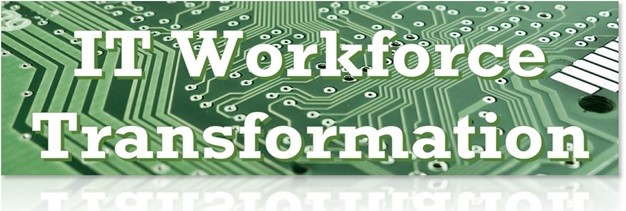From one century to the next, the most modern technological products are nearly unrecognizable when compared side by side with their antiquated counterparts. With such a quick pace of change in the technology world, humans are forced to adapt at a similar rate. We improved productivity with digital messaging, we optimized with web analytics, and we successfully captured huge amounts of data in physical data warehouses.
Now, we can store and compute data in with cloud infrastructure, which has inevitably affected a relatively large part of the way we function as businesses within a society. The IT workforce is the most powerfully impacted by this change as several significant developments resulting from cloud adoption are now apparent.
Open source projects gain in popularity
Although technical knowledge will continue to be in high demand, the integration of software from a vast amount of sources is finally seeming to be the best way to go when dealing with cloud infrastructure. It is becoming increasingly popular for developers to skip the middleman and find their own solutions.
This will in turn lead to a new ecosystem in management that will hire those that have the best skills centered on utilizing open source software. This is happening already at a small level, but indeed, looks to be leveling out as not so special anymore.
Certifications are going out of style with constant proficiency honing
With the recent surge in massive open online courses to remedy these rapid technological changes, certifications mean less than they once did by a long shot. Instead of having technology change from one year to the next in meaningful way, it’s now closer to from one month to the next. Now, constant training is the most viable option rather than learning a skill over a course of time and then acting solely off of that knowledge. It’s looking like the Microsoft Cloud is the most significant thought leader in this space so far.
IT pros will be pushed to become both IT and business pros
Although this is not a new concept, cloud adoption is pushing this idea as the complex nature of the data that is being transferred to cloud service providers will need to be interpreted in new ways. Instead of sitting only behind a computer to create an end product, the IT workforce will now need to gain a strategic viewpoint to align their skills with the businesses growth to stay in these evolving positions.
Cloud adoption is giving a powerful helping hand to small businesses
No longer are only the big players able to create advantages with cloud infrastructure. Smaller enterprises can see all the benefits the large conglomerates have been with the modern progression of cloud computing and storing. This will in turn affect both the society IT professionals live in and how they interact with the businesses they work for. Besides filling up a department in a large corporate office, IT workers will soon be found in the smallest of companies.
Image Credit: https://pixabay.com/en/board-electronics-computer-453758




